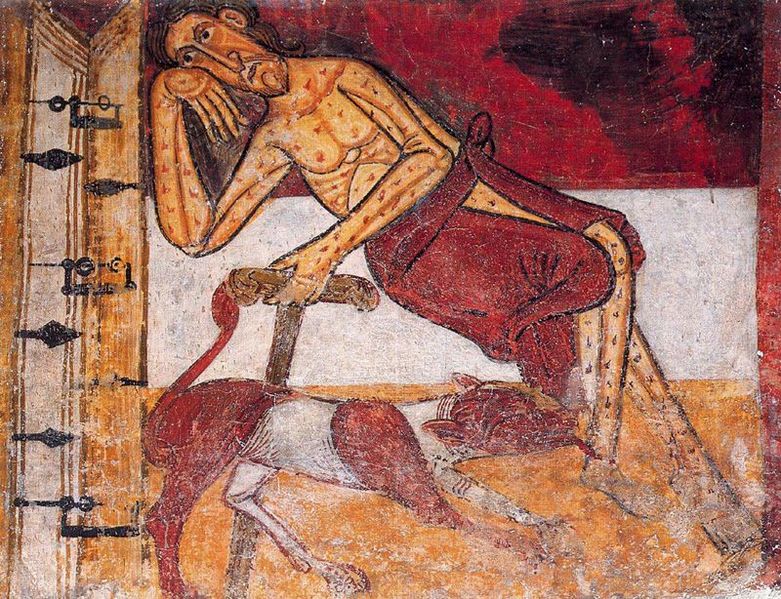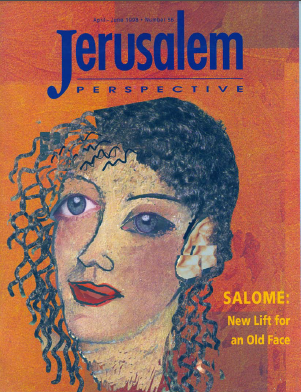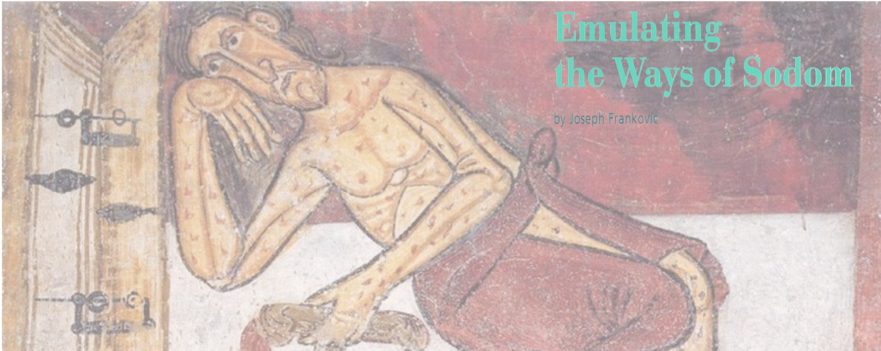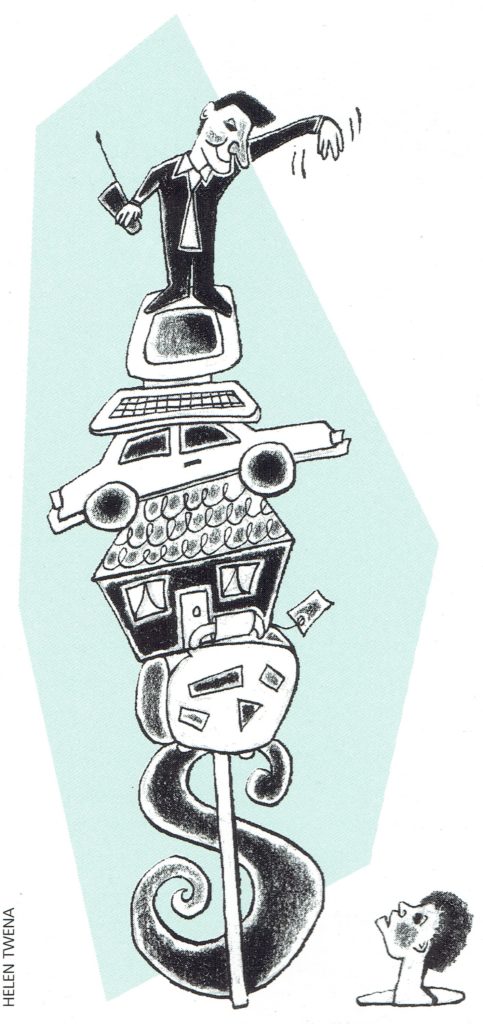How to cite this article: Joseph Frankovic, “Emulating the Ways of Sodom,” Jerusalem Perspective 55 (1999): 38 [https://www.jerusalemperspective.com/2835/].

In an old rabbinic text that contains the opinions of sages who lived and taught in Israel before and after Jesus, we find the following saying:
There are four types among people: The one who says, “What is mine is mine, and what is yours is yours.” This is the average person. The one who says, “What is mine is yours, and what is yours is mine.” This is the simpleton. The one who says, “What is mine is yours, and what is yours is yours.” This is the saintly person. The one who says, “What is mine is mine, and what is yours is mine.” This is the wicked person. (Mishnah, Avot 5:10)
Regarding the first type of person, the one who says, “What is mine is mine, and what is yours is yours,” the rabbis offered a second opinion: “This is the Sodomite.”
A Christian may think that this second opinion is rather peculiar or perhaps out of place altogether. Nevertheless, the rabbis were very careful readers of the Bible, and this opinion arose from a close reading of the text. The prophet Ezekiel once declared publicly to Jerusalem’s residents: “Behold, this was the guilt of Sodom, your sister. She and her daughters were haughty, had plenty of food, and enjoyed tranquility, but the hand of the destitute and poor she did not strengthen.” Considered in the light of Ezekiel’s words, the second opinion emerges as an incisive comment on Ezekiel 16:49.
The Gospel writer Luke recorded a story that Jesus told about an anonymous rich man and a poor man named Lazarus. Living in splendor, the rich man enjoyed his wealth, whereas Lazarus pined away outside the rich man’s gated home. The story gives the reader the impression that the rich man did little to alleviate Lazarus’ pain. He probably reasoned that what was his was his, and what was Lazarus’ was Lazarus’.

In the United States and other Western countries, many of us are reaping the benefits of living during a period of economic prosperity. Holding university degrees in high-demand areas of expertise and having had our money invested in the right place for the advent of Wall Street’s lucrative bull market, some of us have witnessed remarkable growth in personal wealth. The new, luxury cars that gracefully cruise our streets and adorn the parking lots of our affluent churches each week attest to the increase.
As our disposable incomes have swelled and our pursuit of life’s finer things has gained momentum, has our concern for the destitute also swelled? Have our efforts to relieve the suffering of the poor gained momentum, too? If not, we should not be surprised nor embarrassed. For as the rabbis of old already suggested, we are merely average people, or at worst, emulating the ways of Sodom.





